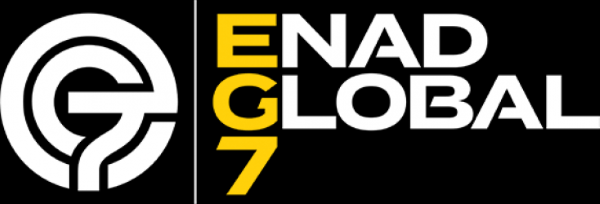I mentioned this in a comment a week or so back in the bullet points post where I covered Robin Flodin being bought out of Enad Global 7, but I figured it deserved a bit more exploration.
It has been a little over 18 months since Enad Global 7, a publicly held company based in Sweden, purchased Daybreak for $260 million. That purchase, and the bright enthusiasm of EG7’s then CEO Robin Flodin gave fans of Daybreak’s games hope that more time and money would be spent on them to keep the current and viable. Plans were announced.
Of course, EG7 didn’t just hand the mysterious, possibly Russian owners of Daybreak a check and send them on their way. While some of the of the deal was in cash, a chunk of EG7’s stock was handed over to close the deal, giving some of the Daybreak principles an equity stake in the acquiring company.
The company moved along, and the news every quarter showed how big of a deal Daybreak was in the EG7 portfolio when it came to game revenue.
Services remained a big chunk of revenue, so it wasn’t all Daybreak. But a lot of that came from Innova… and, well, that went away in the fallout from the Russian invasion of Ukraine.
And then last summer we got news that Robin Flodin was out as CEO of EG7, allegedly due to him being able to answer a question correctly on a news report, just ahead of the Q2 2021 financials announcement. That announcement included the news that Ji Ham, formerly acting CEO of the independent Daybreak would be stepping up to become acting CEO of EG7, replacing the deposed Flodin.
We also got a look into who the big stockholders in EG7 were when it came to the board of directors.
In third place on the list was Jason Epstein of Daybreak. First place was the founder of Innova, and we don’t know where he or his share stand since EG7 divested itself of the company.
Then, at the end of May, Robin Flodin was bought out, with several board members purchasing the remaining 2,446,592 he had in the company. The statement at the time read as follows:
On May 25, 2022, the EG7 executive team and select board members purchased 2,446,592 shares, representing 2.8% of outstanding shares, from Robin Flodin, the former CEO of EG7. The purchase price was SEK 16.25 per share and amounted to almost SEK 40 million. After this transaction, Mr. Flodin will no longer be a shareholder in the company. The purchasing group was led by Jason Epstein, a current board member and the proposed new chairman of the board who acquired 1.1 million shares; Ji Ham, the acting CEO, acquired 900,000 shares, doubling his stake; and Alexander Albedj, the current chairman of the board, acquired 250,000 shares. Additional participants in the group included the deputy CEO and CFO, IR-responsible and independent board members.
The chief beneficiary was Jason Epstein, who acquired 1.1 million of those shares, followed by Ji Ham, who gained 900,000 shares for himself, boosting the ownership stake of those board members who previously owned Daybreak considerably.
What slipped by my on my initial read was this tidbit in the middle of that paragraph in reference to Mr. Epstein:
a current board member and the proposed new chairman of the board
Jason Epstein may very well be announced as the chairman of the board of directors when we get the next financials update at some point next month. That, along with Ji Ham remaining in the CEO role, acting or otherwise, means that the management of the previously independent Daybreak now holds the two top positions at Enad Global 7.
Kind of strange, isn’t it? Maybe? Maybe not.
It seems quite possible, in hindsight, that Daybreak let itself be acquired by EG7 at least in part to turn a privately held asset into a publicly held company, saving themselves the problem of having to do an IPO in what has been something of a crazy market for the last few years.
And before you dismiss that, if you look up Reverse Takeover, you will find more than a few recognizable companies have done this before. And if you discount IPOs as a motive, you can find an even bigger list of companies being acquired only to take over the purchasing company. Palm and Handspring come to mind, where the founders of Palm left, founded Handspring, got themselves acquired by Palm, and ended up running Palm again. And then they sold out to HP who destroyed the whole thing, as they tend to do. Seriously, Palm was ahead of Apple on any number of fronts and managed to fumble that lead.
Anyway, does this mean anything to the actual titles in Daybreak’s stable? Probably not.
I noted a few times that despite Daybreak’s poor PR skills and attempts to gaslight us all wholesale about things like who actually owned the company, that titles like EverQuest and EverQuest II seemed to thrive during the Daybreak era, settling into regular and predictable routines of new content and updates.
Things at Daybreak were not perfect. They failed to launch a successful new title during their entire tenure as stewards of the house that SOE built, a tradition that has carried on at EG7 with the cancellation of the unnamed Marvel IP title.
So there is no “ah ha!” or “gotcha!” in this, just some observations that make me wonder where EG7 will head now that it seems to be run by the team that brought you all that was Daybreak.



